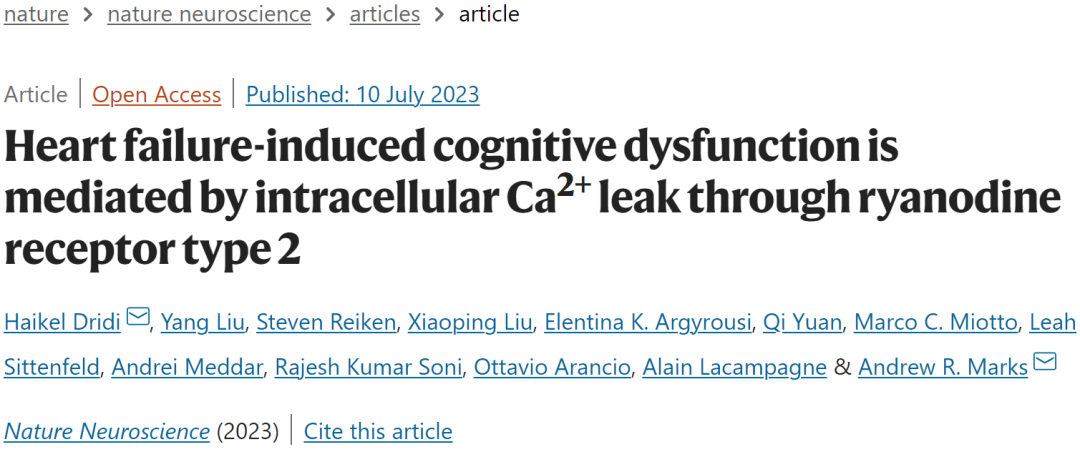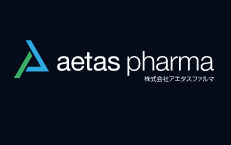预约演示
更新于:2025-05-07
RYR1 x RYR2
更新于:2025-05-07
关联
5
项与 RYR1 x RYR2 相关的药物作用机制 RYR1调节剂 [+3] |
在研机构 |
非在研适应症- |
最高研发阶段批准上市 |
首次获批国家/地区- |
首次获批日期1800-01-20 |
作用机制 RYR1调节剂 [+1] |
在研机构- |
原研机构- |
在研适应症 |
非在研适应症- |
最高研发阶段批准上市 |
首次获批国家/地区- |
首次获批日期1800-01-20 |
作用机制 RYR1调节剂 [+2] |
在研适应症 |
非在研适应症 |
最高研发阶段临床2期 |
首次获批国家/地区- |
首次获批日期1800-01-20 |
60
项与 RYR1 x RYR2 相关的临床试验CTRI/2024/11/076183
Comparative evaluation of tetracaine based light-cured anaesthetic gel with commercially available topical anesthetics for stainless steel crown procedures in pulpectomized primary molars: A randomized clinical trial. - NIL
开始日期2024-11-07 |
申办/合作机构- |
NCT05917119
Bright Light Therapy for Residual Daytime Symptoms Associated With Obstructive Sleep Apnea
Persistent daytime symptoms of sleepiness in individuals with obstructive sleep apnea (OSA) who are using Continuous Positive Airway Pressure (CPAP) are associated with adverse long term medical and functional outcomes. Supplementary exposure to bright light has beneficial effects on sleep quality and daytime vigilance in healthy individuals and it has been increasingly applied in a variety of sleep and neuropsychiatric conditions. This study will explore the role of Bright Light Therapy (BLT), a well-established non-pharmacological intervention for circadian disturbances, for the treatment of residual daytime symptoms of OSA which do not respond to CPAP. BLT will be delivered via therapy glasses in a cross-over design, where each participant will be exposed to active treatment and sham treatment (4 weeks in each arm) in a randomized order. The hypothesis is that participants will demonstrate improvements in the variables of interest during the four-week active treatment portion of the eight-week crossover study, compared to the four-week sham treatment portion.
开始日期2024-10-26 |
100 项与 RYR1 x RYR2 相关的临床结果
登录后查看更多信息
100 项与 RYR1 x RYR2 相关的转化医学
登录后查看更多信息
0 项与 RYR1 x RYR2 相关的专利(医药)
登录后查看更多信息
305
项与 RYR1 x RYR2 相关的文献(医药)2024-10-01·Journal of Biological Chemistry
Rapid small-scale nanobody-assisted purification of ryanodine receptors for cryo-EM
Article
作者: Efremov, Rouslan G ; Uchański, Tomasz ; Efremov, Rouslan G. ; Willegems, Katrien ; Pardon, Els ; Steyaert, Jan ; Li, Chenyao
2024-01-26·Journal of Natural Products
The Effect of Acidic Residues on the Binding between Opicalcin1 and Ryanodine Receptor from the Structure–Functional Analysis
Article
作者: Hua, Xiaoyu ; Yao, Jinchi ; Tang, Qinglong ; Wang, Yongfang ; Valdivia, Héctor H. ; Xiao, Li ; Valdivia, Carmen R. ; Dong, Weibing ; Huo, Wenjing ; Xiao, Liang
2023-10-01·European heart journal. Case reports
Successful treatment of frequent premature ventricular contractions and non-sustained ventricular tachycardia with verapamil and flecainide in RYR1-related myopathy: a case report.
作者: Takeda, Atsuhito ; Nishino, Ichizo ; Maruo, Yuji ; Saito, Yoshihiko
2
项与 RYR1 x RYR2 相关的新闻(医药)2024-01-29
ARMGO Pharma Publishes Positive Phase 1b Trial Results of Rycal® ARM210 for the Treatment of Ryanodine Receptor 1 Related Myopathies
Phase 1b open label trial confirms safety and tolerability of 120 mg and 200 mg dosing of ARM210 daily in patients with Ryanodine Receptor 1 Related Myopathies
Provides first signs of clinical efficacy improving fatigue and proximal muscle strength in patients at 200 mg daily
Corroborates allosteric mechanism of action of Rycal® ARM210 to restore muscle function by repairing mutated ‘leaky’ Ryanodine Receptor 1 channels
January 29, 2024 – ARMGO Pharma, Inc. (ARMGO), a clinical stage biopharmaceutical company advancing a novel class of small molecule drugs known as Rycals®, announced today the publication of the results from a Phase 1b study of its Rycal ARM210 (also known as S48168), for the treatment of Ryanodine Receptor 1 Related Myopathies (RYR1-RM), an orphan muscle disease.
The data was published in a paper entitled ‘Rycal S48168 (ARM210) for RYR1-related myopathies: A phase one, open-label, dose-escalation trial’ authored by Dr Joshua Todd et al in the peer reviewed Journal eClinicalMedicine, part of the Lancet family of publications. The paper reviews data from the Phase 1b study of ARM210 and its novel allosteric mechanism of action (MoA) targeting the root cause of RYR1-RM: mutated Ryanodine Receptor 1 (RYR1).
The RYR1 gene encodes RyR1, an intracellular calcium-release channel that becomes leaky in muscle diseases. Intracellular calcium leaks caused by mutant RyR1 channels impair muscle contraction leading to muscle weakness and loss of function, and activate toxic pathways that damage muscle, causing the symptoms in RYR1-RM.
The Phase 1b, open-label, dose-escalation trial confirmed safety, tolerability and pharmacokinetics of 120 and 200 mg dosing of ARM210 daily over for 29 days in adult men and women affected with RYR1-RM.
Importantly, it also demonstrated preliminary efficacy in the higher dose group in two hallmark symptoms of RYR1-RM: 1) significant alleviation of fatigue assessed by PROMIS-fatigue t-scores and 2) improved proximal muscle strength assessed by physical shoulder abduction exam (Medical Research Council grading). These results warrant further development of ARM210 as a potential disease modifying treatment for RYR1-RM in a randomized, placebo-controlled Phase 2 trial.
The completed Phase 1b trial was conducted in collaboration with the National Institute of Neurological Disorders and Stroke (NINDS) and the National Institutes of Health (NIH) under a Cooperative Research and Development Agreement (CRADA), with the support of the RYR-1 Foundation, Pittsburgh, PA, USA.
“We are very pleased with the results of the RYR1-RM trial conducted together with the NIH, as the study has confirmed the safety and tolerability of ARM210, but most importantly, it has demonstrated for the first time that our Rycal®, ARM210, can reverse symptoms of this devastating, chronic muscle disease in a short treatment period. That is very promising”, said Gene Marcantonio, M.D., Ph.D., Chief Executive Officer of ARMGO Pharma. “We look forward, therefore, to rapidly continuing the development of ARM210 to bring this potential first treatment to RYR1-RM patients with the support of the RYR-1 Foundation and the patient community.”
Michael F. Goldberg, M.D., M.P.H., Co-Chair of Research of the RYR-1 Foundation added, “We are elated by the publication of this important study, as it represents a beacon of hope for the many individuals and families from around the world who are affected by RYR1-RM. We look forward to the next stages in the development of this important drug.”
Further information about this Phase 1b trial can be found online at: https://clinicaltrials.gov/study/NCT04141670. The trial was supported by Intramural Research Programs of the NIH/NINDS, NIH/NINR, a NIH Clinical Center Bench to Bedside Award (2017-551673) and ARMGO’s previous collaboration partner Les Laboratoires Servier. The content is solely the responsibility of the authors and does not necessarily represent the official views of the National Institutes of Health.
Publication reference:
Rycal S48168 (ARM210) for RYR1-related myopathies: a phase one, open-label, dose-escalation trial, Todd et al, eClinicalMedicine https://www.thelancet.com/journals/eclinm/article/PIIS2589-5370(24)00012-9/fulltext
ARM210 (S48168) is a small molecule of the Rycal class, owned and developed by ARMGO for the treatment of Ryanodine Receptor mediated diseases such as RYR1-RM. It is an allosteric modulator that binds preferentially to leaky RyR channels and repairs the leak, as previously demonstrated in vitro in muscle biopsies from RYR1-RM patients.
ARM210 (S48168) is currently undergoing Phase 2 clinical development for a second orphan indication, Catecholaminergic Polymorphic Ventricular Tachycardia (CPVT), a genetic arrhythmia caused by mutations in RYR2, the cardiac calcium channel gene.
ARM210 (S48168) was awarded orphan drug designation for RYR1-RM in 2018 by the FDA and for CPVT in 2020. ARMGO also has a rare pediatric disease designation for CPVT.
ARMGO Pharma, Inc., is a privately held biopharmaceutical company dedicated to developing novel small-molecule therapeutics to treat cardiac, and musculoskeletal disorders characterized by leaky Ryanodine Receptor (RyR) calcium channels. The Company’s proprietary drugs, known as Rycals®, are a new class of oral agents that repair these leaky calcium channels. ARM210, ARMGO’s most advanced Rycal, is currently in clinical development for two rare and orphan diseases, Catecholaminergic Polymorphic Ventricular Tachycardia (CPVT), a life-threatening cardiac disease and RYR1-Related Myopathy (RYR1-RM) a severe muscle disease. ARMGO Pharma has an exclusive, worldwide license from Columbia University for its RyR technology based on the research of founding scientist Andrew R. Marks, M.D.
The Pittsburgh, Pennsylvania-based 501(c)(3) public charity was launched in October 2014. It is currently the only organization that exists solely to advocate for and serve the needs of individuals affected by RYR-1-related diseases (RYR-1-RD), the most common cause of congenital myopathy. The RYR-1 Foundation supports research leading to an effective treatment or a cure for RYR-1-RD. To achieve this mission, The RYR-1 Foundation has several goals:
1) Support Research: The RYR-1 Foundation makes grants to researchers interested in RYR-1-RD. Developing a patient registry is also key to promoting clinical trials of potential therapies.
2) Medical Professional Education: The vast majority of medical professionals have never heard of RYR-1-RD. The RYR-1 Foundation raises awareness through resources on our website, including the latest medical literature, as well as direct meetings with medical professionals around the world.
3) Patient/Family Support and Advocacy: Due to the rarity of RYR-1-RD, receiving this diagnosis can be an anxiety-provoking and isolating experience for an affected patient and their families. The RYR-1 Foundation serves as a resource for patients and their families through our website, other forms of social media, and family conferences.
The content above comes from the network. if any infringement, please contact us to modify.
临床结果孤儿药引进/卖出
2023-07-17
·生物谷
心力衰竭患者往往会出现认知障碍,这并非巧合。在这项研究中,Andrew R. Marks和他的同事们揭示心力衰竭引发认知障碍的机制,并使用用于治疗心脏疾病的实验药物,成功提高了心力衰竭小鼠的认知能力。
一旦心脏无法正常地将血液泵送到身体的其它部位,大脑会发生什么变化?
心源性痴呆症(cardiogenic dementia),这个概念最早于1977年出现在《柳叶刀》期刊上,便是指与心力衰竭相关的认知功能下降[1]。临床数据显示,20%-80%的心力衰竭患者遭受心源性痴呆的困扰,表现为健忘或学习能力较差,可能不利于患者的自我护理或遵行医嘱,甚至干扰患者对于心力衰竭病情恶化的感知和描述。
而近年来,越来越多的证据支持,在这层关系中,心力衰竭属于“始作俑者”,可能对大脑产生负面影响、导致认知功能下降。如今,心力衰竭已经成为全球范围内患者人数增长最为迅速的一种心血管疾病,影响着数百万人。破解心力衰竭与认知障碍之间的谜题,成为众多科学家们的目标。
美国哥伦比亚大学的Andrew R. Marks和他的同事们发现,心力衰竭会导致大脑神经元中的内质网钙离子泄漏,引发神经传递通路紊乱、多种酶激活等,从而导致认知能力下降。使用药物修复神经元的钙离子释放通道、阻止钙离子异常泄露,则可以改善心力衰竭小鼠的认知能力[2]。
文章于近日发表在Nature Neuroscience期刊上。
论文首页截图
钙离子是重要的信号分子,其细胞内的平衡受钙离子释放通道蛋白RyR调节。响应细胞内信号分子后,RyR通道打开,将储存在内质网中的钙离子释放,短时间内迅速提高细胞质中钙离子水平、放大钙信号,从而触发一系列细胞功能和生理过程。
在心力衰竭的早期阶段,心肌细胞中的RyR通道无法正常关闭,这导致过多的钙离子泄漏,削弱心肌细胞的收缩能力,造成心脏损伤。
除了心肌细胞,RyR通道还广泛存在于平滑肌细胞、神经元等许多类型细胞中,并分为RyR1、RyR2、RyR3三个亚型。在这项研究中,Andrew R. Marks 和他的同事们打算前往大脑看看神经元中的RYR通道到底是怎么回事。
为此,研究者们获取9名心力衰竭患者和4名非心力衰竭人员(对照组)的大脑海马组织样本进行分析。
结果显示,与对照组相比,心力衰竭患者的大脑神经元RyR通道表现出异常特征,包括过度磷酸化、半胱氨酸亚硝酰化、缺乏维持构象稳定的亚基等。同时观察到,心力衰竭患者的大脑神经元RyR通道开放概率增加、开放时间延长、闭合时间缩短,且存在钙离子从内质网异常泄漏到细胞质的情况。
如此来看,对于心力衰竭患者来说,心脏和大脑中负责调控钙离子的通道都出现异常,心肌细胞和神经元中的钙离子水平失衡。
心力衰竭患者的海马神经元出现钙离子泄露
由于患者的临床表现很复杂,接下来研究者们改用小鼠进行实验,探索与心力衰竭相关的认知障碍——心源性痴呆症究竟是如何发生的。
与患者样本的分析结果一致,心力衰竭小鼠的大脑神经元RyR通道表现出同样的异常特征并伴随内质网钙离子泄露。
开放场实验、高架十字迷宫实验、水迷宫实验等测试结果则显示,心力衰竭小鼠表现出异常行为和记忆缺陷,包括探索行为、短期记忆和空间学习记忆的下降。从大脑的功能和能量代谢来看,心力衰竭小鼠的长时程增强作用(LTP)受到损害,即神经元之间传递信号的强度和持久性减弱,以及葡萄糖代谢受损(这是阿尔茨海默病诊断的临床标志)。
水迷宫测试结果显示,心力衰竭小鼠表现出长期学习和记忆能力下降
然而,堵住这个溃堤的大坝,一切都可以得到逆转。
Rycal药物是RyR通道的稳定剂,通过稳定RyR通道的构象,阻止其过度开放或渗漏钙离子,从而保持细胞内钙离子的正常平衡状态。目前,Rycal药物已被广泛用于与钙离子泄露相关疾病的临床试验,比如心脏疾病或其它肌肉疾病。
在这里,研究者们使用了一种称为S107的Rycal药物,S107能够穿过血脑屏障。心力衰竭小鼠接受S107治疗后,大脑神经元RyR通道的结构和功能被修复,内质网钙离子泄露现象减少。更重要的是,这些小鼠的认知功能得到改善,神经元之间的通信和突触传递得到改善,并维持正常的大脑代谢活动。
不仅如此,研究者们还采用了另一种Rycal药物进行对比。与S107不同,ARM036虽然也能修复RyR通道,但无法穿过血脑屏障。结果显示,ARM036治疗未能改善心力衰竭小鼠的认知功能。
除了负责稳定通道构象的Rycal药物,非选择性β-肾上腺素受体拮抗剂普萘洛尔、TGF-β抑制剂SD-208以不同的机制在调节RyR通道、恢复钙离子平衡以及改善心脏结构和功能方面发挥作用。同样地,这两种药物的治疗帮助心力衰竭小鼠的大脑神经元RyR恢复常态,改善认知障碍。
针对RyR通道的不同药物治疗,心力衰竭小鼠的认知能力改变
随后,研究者们利用遗传学技术构建不同突变体的小鼠模型,验证大脑神经元的RyR通道异常、内质网钙离子泄露对认知功能的负面影响,并指出针对RyR通道进行干预可能有助于改善认知功能。
他们进一步对其中的机制进行探索。
结果显示,当心力衰竭发生时,肾上腺素途径的激活,正是导致神经元中受RyR通道调控的钙离子发生泄漏的原因。
神经元中的内质网钙离子泄露后,神经递质异常释放、炎症反应增加,神经元线粒体功能紊乱、发生氧化应激反应。另外,钙离子泄露还会导致几种关键酶的活化(如AMPK、CDK5、CaMKII),这些酶的激活是阿尔茨海默病大脑中Tau蛋白和淀粉样沉积形成的触发因素。
好看的机制图
总而言之,心力衰竭患者往往会出现认知障碍,这并非巧合。在这项研究中,Andrew R. Marks和他的同事们揭示心力衰竭引发认知障碍的机制,并使用用于治疗心脏疾病的实验药物,成功提高了心力衰竭小鼠的认知能力。

基因疗法
分析
对领域进行一次全面的分析。
登录
或

生物医药百科问答
全新生物医药AI Agent 覆盖科研全链路,让突破性发现快人一步
立即开始免费试用!
智慧芽新药情报库是智慧芽专为生命科学人士构建的基于AI的创新药情报平台,助您全方位提升您的研发与决策效率。
立即开始数据试用!
智慧芽新药库数据也通过智慧芽数据服务平台,以API或者数据包形式对外开放,助您更加充分利用智慧芽新药情报信息。
生物序列数据库
生物药研发创新
免费使用
化学结构数据库
小分子化药研发创新
免费使用

